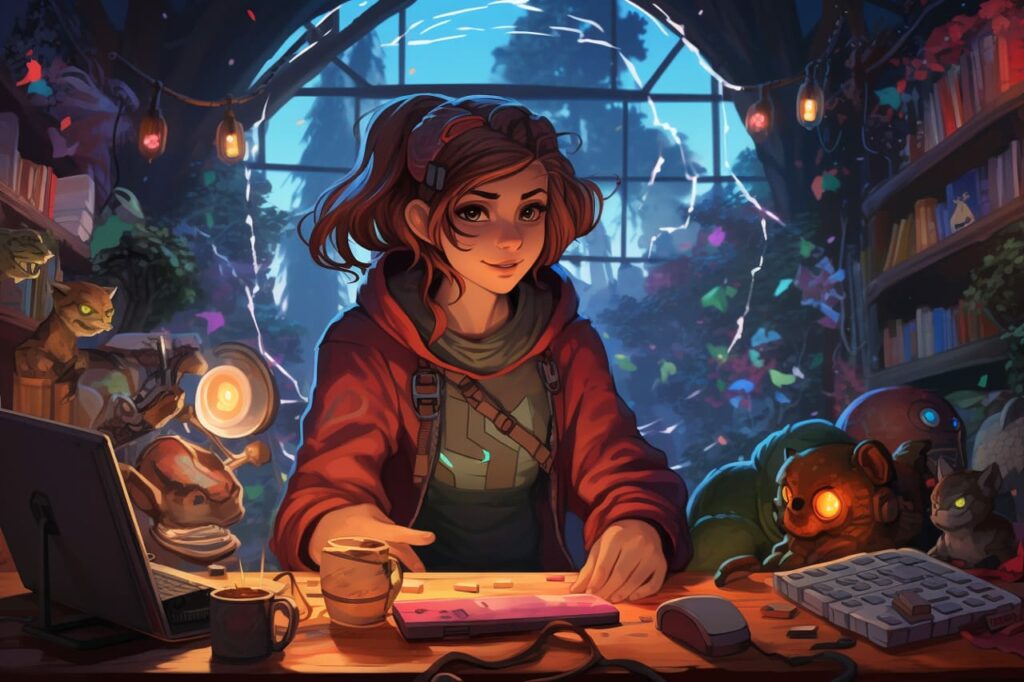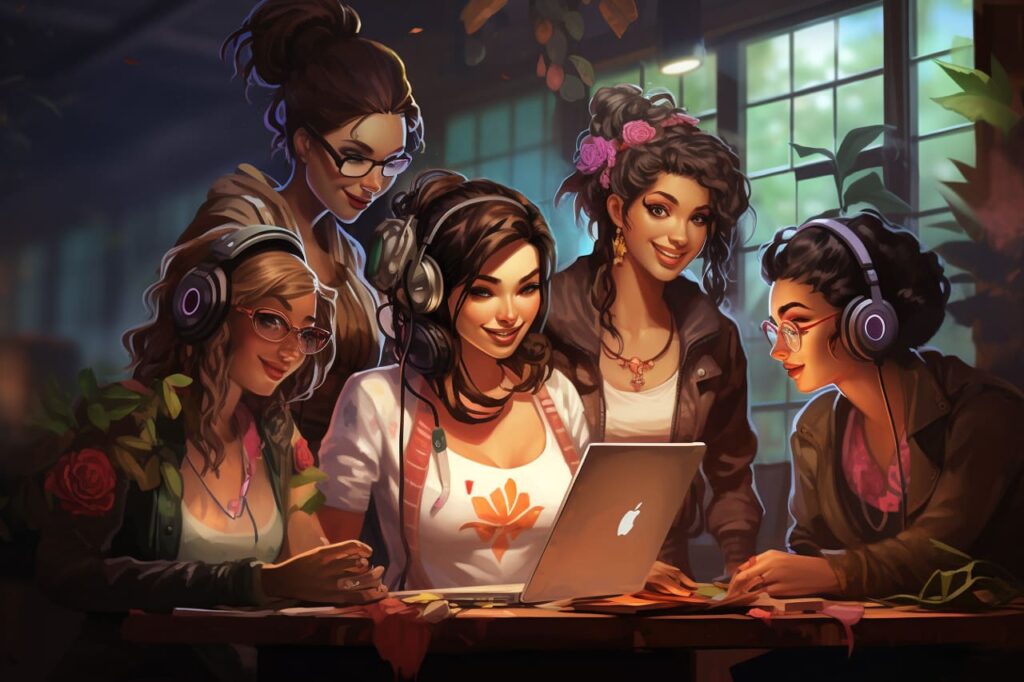The gaming industry has always been known as a male-dominated space. However, things are slowly but surely changing. Women are breaking stereotypes and making their mark in the gaming industry, from developing and designing games to becoming some of the world’s top gamers.
The Challenges of Being a Woman in Gaming
While the gaming industry has come a long way in terms of diversity, women still face many challenges. According to a 2018 report by the International Game Developers Association, only 22% of game developers identify as women. This lack of representation has made it challenging for women to be taken seriously in the industry.
Women in gaming also face discrimination and harassment. The same report revealed that 45% of women in the gaming industry have experienced some form of discrimination or harassment. This ranges from being ignored or dismissed to being verbally abused and receiving death threats.
The online gaming community can be especially hostile towards women. Female gamers often report being harassed or bullied online simply for being a woman. Some women even go as far as hiding their gender or playing with a male username to avoid harassment.
Women Making Their Mark in the Industry
Despite the challenges, many women have made their mark in the gaming industry. Female game developers are responsible for some of the most popular and critically acclaimed games, from the puzzle game “Portal” to the survival horror game “Dead Space”.
In recent years, women have also made a name for themselves as professional gamers. Competitions like the Overwatch League and League of Legends World Championship feature teams with female players, and some of the top gamers in the world are women.
Streaming has also given female gamers a platform to showcase their skills and engage with their fans. Streamers like Pokimane and Valkyrae have millions of followers on Twitch and YouTube, and are widely respected in the gaming community.
The Importance of Female Representation in Gaming
Representation matters, and it’s especially important in the gaming industry. Video games are a powerful medium for storytelling and self-expression, and it’s important for all gamers to be able to see themselves represented in the games they play.

When women are involved in the development and design of games, it’s more likely that female characters will be portrayed in a realistic and respectful way. This can help break down stereotypes and challenge the traditional gender roles that have been so prevalent in the gaming industry.
It’s also important for young girls to see that there are successful women in the gaming industry. When girls see women succeeding in male-dominated fields, it can help break down the barriers that have traditionally held them back.
The Importance of Celebrating Women in Gaming
Celebrating women in gaming is important to break down stereotypes and promote inclusivity. Women have long been underrepresented in the gaming industry, but things are slowly changing. There are now organizations and groups that support women in gaming, such as Women in Games and the Women’s Gaming Network. These organizations promote diversity in the industry and offer a platform for women to connect and support each other.
As more and more women enter the industry, the culture is slowly but surely changing. More games are featuring strong female characters and diverse representations of women in games. These changes are challenging traditional stereotypes and creating a more inclusive and welcoming environment for all gamers.
It’s also important to recognize the contributions that women have made to the gaming industry. Female game developers have created some of the most popular and critically acclaimed games, while female professional gamers have broken records and become household names. Celebrating these women not only honors their achievements but also inspires the next generation of women in gaming.
The Impact of Harassment and Discrimination
Harassment and discrimination are major issues facing women in gaming. Women are often subject to online harassment and bullying, simply for being a woman. This can have a profound impact on their mental health and well-being.
The lack of representation in the gaming industry can also lead to discrimination and exclusion. Women are often dismissed or ignored in the industry, which can make it challenging for them to be taken seriously. This can be discouraging and make it difficult for women to succeed in the industry.
Harassment and discrimination are not just a women’s issue – they are a community issue. The gaming community must work together to create a more inclusive and supportive environment for all gamers. This includes calling out harassment and discrimination when it occurs and promoting diversity and inclusivity in the industry.
The Future of Women in Gaming
The future of women in gaming looks bright. As more and more women enter the industry, the culture is slowly but surely changing. Organizations like Women in Games and the Women’s Gaming Network are working to create a more inclusive and supportive community for women in gaming.
More and more games are also featuring strong female characters as their protagonists, and women are being represented in a more diverse range of roles in games. This is helping to challenge the traditional stereotypes of women in gaming and create a more inclusive and welcoming environment for all gamers.
As streaming continues to grow in popularity, more and more women are using the platform to showcase their gaming skills and connect with their fans. This is helping to break down the barriers that have traditionally held women back in the gaming industry, and is opening up new opportunities for women to succeed.
Conclusion
Women have made incredible strides in the gaming industry, but there is still a long way to go. By breaking stereotypes, challenging discrimination, and supporting each other, women in gaming are creating a more inclusive and diverse community. With more and more women entering the industry every day, the future of gaming is looking brighter than ever.

